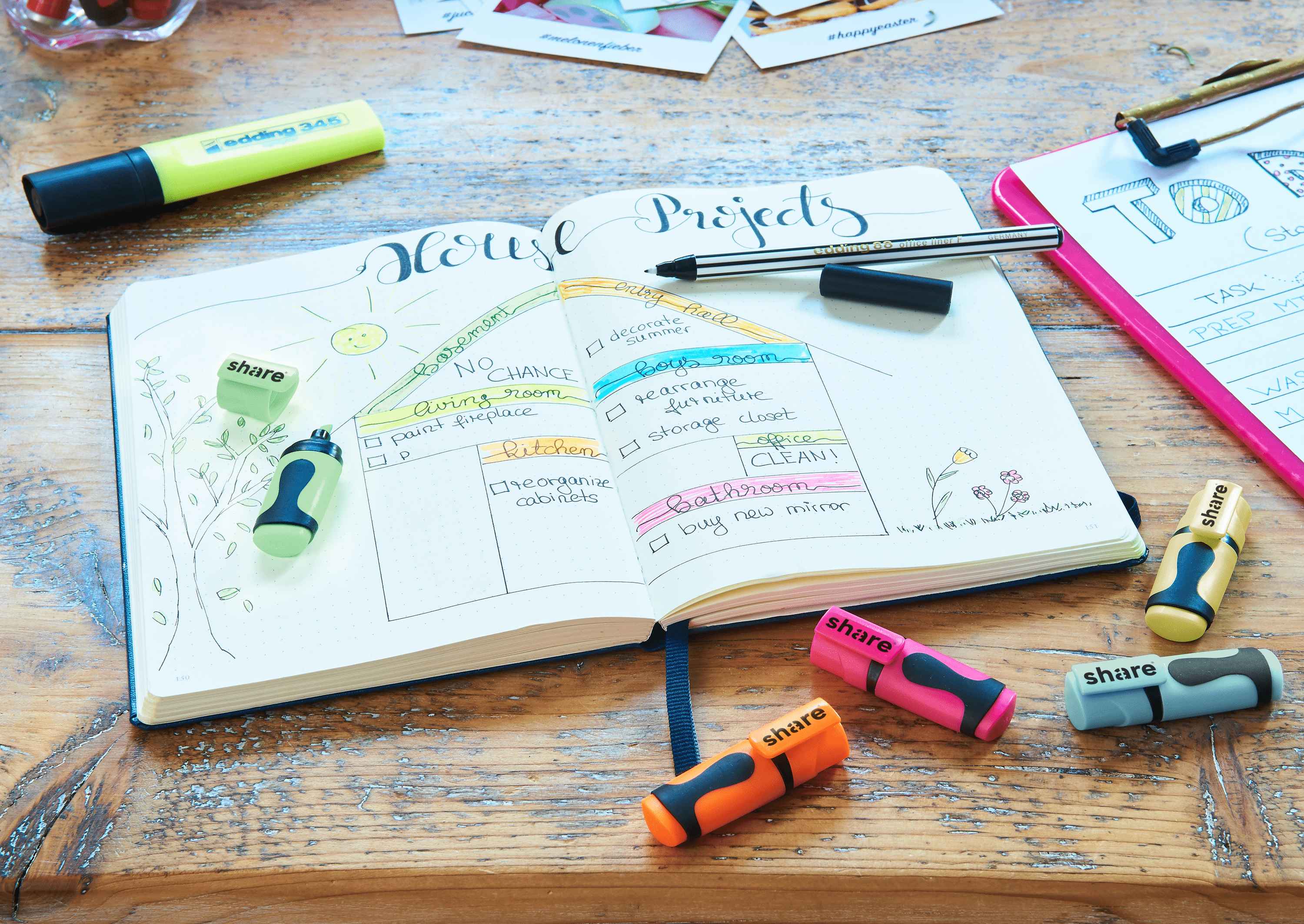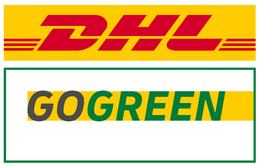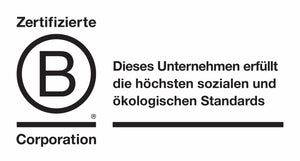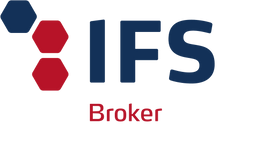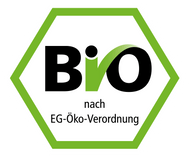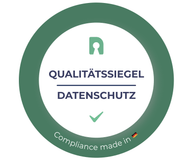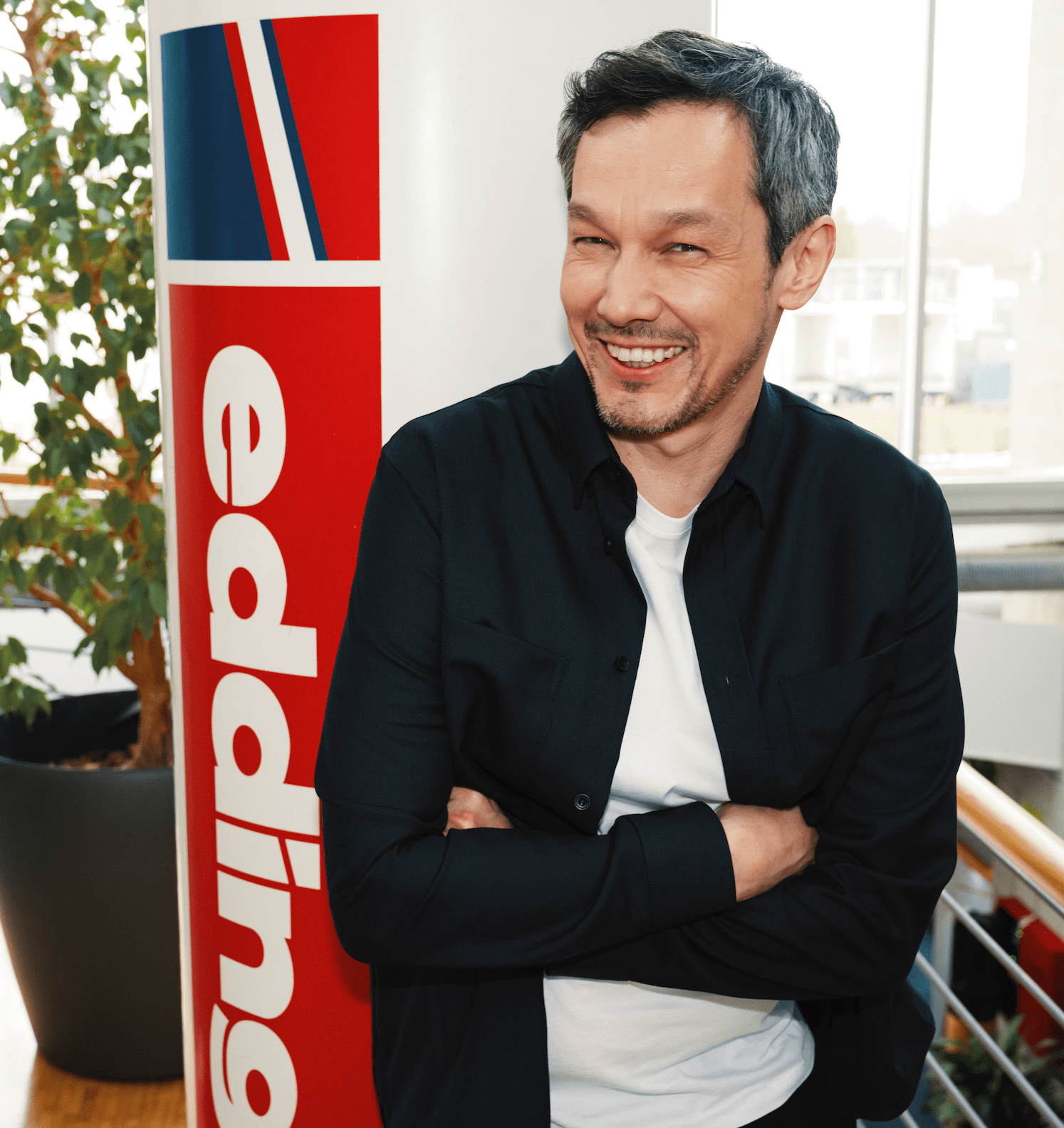
Boontham in an interview
Boontham Temaismithi has been with the edding Group since 2022 and, together with Fränzi Kühne, is responsible for the role of Chief Digital Officer on the Executive Board.
We spoke with him about how to successfully combine social responsibility and economic activity, and what personally motivates him to advocate for educational opportunities worldwide. The conversation offers fascinating insights into the collaboration with share and our shared mission.
Person & Attitude
Boontham, you are active in many roles – what motivates you?
What drives me is a deep curiosity and a desire to actively shape things. We all move between different roles every day, and in each of them, for me, it's about understanding, thinking ahead, and moving forward together. I'm convinced that further development is most successful when we bring others along, share perspectives, and explore new paths together.
What significance does social responsibility have for you – both professionally and privately?
For me, social responsibility means acting consciously, both professionally and personally. In a professional context, this means acting sustainably, tolerantly, and fairly, and always being aware of the impact I have. Responsibility, for me, is reflected in how we make decisions, how we treat people, and how we shape change. In my personal life, it's even more about my own sustainability—how I consciously and responsibly shape my everyday life. This starts with small decisions and extends to the question of which values I live by and pass on. In both areas, it's crucial for me not only to act for myself but also to consider others.
Social impact and economic goals are not mutually exclusive – in the best-case scenario, they reinforce each other. This is particularly evident in the retail sector, where responsible business practices demonstrate that they build trust in the long term and strengthen the brand.
Responsibility at the edding Group
edding combines quality, sustainability, and purpose. How do you manage to unite digitalization and innovation with social responsibility?
For us, digitalization, innovation, and social responsibility are not contradictory. On the contrary, they often run parallel and can be effectively combined. The key, in my view, lies in not focusing solely on efficiency or growth, but also on the impact of our actions on people, the environment, and society. When we consider innovation holistically—not just technologically, but also socially and ecologically—real progress emerges. In this way, we can use digital solutions not only to improve processes, but also to assume social and environmental responsibility and generate positive change.
From your perspective, how can social impact be reconciled with economic goals, for example in retail? Are there any conflicts of interest between impact and revenue?
Social impact and economic goals are not mutually exclusive – in fact, they often reinforce each other. The retail sector, in particular, demonstrates that responsible business practices build long-term trust and strengthen brands. Of course, conflicting objectives exist, such as the higher costs of ethically sourced materials or the tension between short-term sales interests and long-term impact. However, when social impact is strategically integrated, it can not only contribute to customer loyalty but also boost employee motivation and identification with the company.
edding x share
What expectations do you have of partner companies when it comes to sustainable practices?
Sustainable action can only be achieved together, which is why it's important to me that partner companies take responsibility seriously and actively participate. I expect openness to transparent communication, the willingness to implement fair and sustainable standards, and a genuine interest in developing solutions together. It's not about being perfect, but about continuous improvement and acting credibly. When sustainability is understood not just as an obligation, but as a shared goal, it creates real impact for everyone involved.
How do we, together with our stationery, support access to education in Uganda – and why is this particularly important to you?
edding is responsible for the distribution of share's entire stationery range. This means that together we are making a very concrete contribution to greater educational equity: with every purchase of a share stationery item, a lesson for a schoolchild in Uganda is made possible. This has already resulted in over 4 million lessons (as of 2024). That's a
An impressive figure that demonstrates the significant impact everyday products can have. This is particularly important to me because, for me, education is the key to self-determination and social participation. If our products can contribute to opening up opportunities and creating prospects, then that is far more than just an economic success.
If our products can help create opportunities and prospects, then that is far more than an economic success.
Outlook & Inspiration
How important is it that products create added value for society these days?
Our products primarily fulfill a solid basic purpose: they are functional and reliable. But today, that alone is no longer enough. For me, what's crucial is the conscious, explicit social added value a product can provide. This can be achieved through sustainable materials, fair production conditions, or the promotion of education and participation. When products take on responsibility beyond their mere utility, they not only create trust but also relevance for customers, employees, and society as a whole.
What structures does a company need to successfully implement impact-oriented projects?
This requires, above all, clear goals and transparent decision-making. It also includes a willingness to break down silos and think across departments. Crucially, responsibilities must be clearly defined, learning explicitly encouraged, and teams given the necessary freedom to develop and implement ideas. When people understand what they are working towards and have the opportunity to actively participate, real impact is created within the project and beyond.
What advice would you give to other decision-makers who want to achieve more impact?
I don't really see myself in a position to offer advice to other decision-makers. The contexts and challenges are often too different. But what I can say from our experience is this: it takes courage to break new ground and make decisions, even if they don't seem comfortable at first. At the same time, it helps to consciously prioritize impact over short-term gain, in other words, to think long-term. Openness, truly listening, entering into collaborations, and not only taking responsibility but also delegating it—these are all principles that are proving very helpful to us right now.
What do you wish for in the future?
Looking to the future, I hope that we, as a company, in partnerships like the one with share, and as an industry as a whole, will even more strongly link impact and economic responsibility. With our profit-for strategy, we consciously pursue the approach of viewing economic success as a means to create social value. This means that profit is not an end in itself, but serves to enable positive impact. In our collaboration with share, I hope that we will further this idea through bold ideas, shared learning processes, and concrete projects that empower people and the environment. And for the industry as a whole, I hope that sustainable practices will be understood not just as a trend, but as a fundamental strategic principle.
Photos: edding Group



